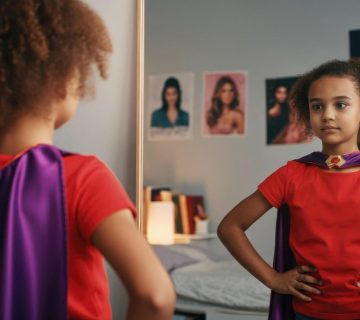Abstract
In a world inundated with vast—and often misleading—information, nurturing critical thinking in children has become an essential imperative. This article introduces the concept of critical thinking, underscores its importance for children’s cognitive and social development, and offers practical methods to foster this skill at home and in school. Its goal is to equip parents and educators with a clear understanding of how to raise a generation of analytical, responsible, and discerning thinkers.
Introduction
The Information Age brings tremendous opportunities but also significant risks. Today’s children encounter data from multiple sources—namely the internet, social media, traditional media, and peers—many of which may be unreliable. Without the ability to analyze and evaluate such information, children can become confused, make poor decisions, or develop unhealthy attitudes. Critical thinking empowers individuals to dissect information, verify its accuracy, and make decisions grounded in logic, evidence, and ethics.
Section 1: What Is Critical Thinking?
Critical thinking is a set of cognitive skills including analysis, evaluation, logical reasoning, questioning, and constructive skepticism toward data and beliefs. Contrary to common misconception, critical thinking is not about blanket negativity or opposing everything. Rather, it involves a deep examination and informed assessment. A critical thinker considers ideas from multiple angles before accepting or rejecting them.
Section 2: Why Is Fostering Critical Thinking in Children Essential?
- Guarding Against Misinformation: Protects against rumors, fake news, and manipulative advertising.
- Building Confidence: Empowers children to articulate their viewpoints logically.
- Enhancing Problem-Solving: Improves decision-making and creative solutions.
- Promoting Tolerance: Encourages respect for diverse perspectives.
- Preparing for Civic Engagement: Equips youngsters to play an effective role in modern society.
During childhood, the brain is highly plastic, and teaching complex cognitive skills like critical thinking at this stage profoundly shapes personality and lifelong learning habits.
Section 3: Barriers to Developing Critical Thinking in Children
- Traditional Education Models: Reliance on rote memorization rather than inquiry.
- Negative Parental Reactions: Discouraging children’s questions or skepticism.
- Unanalyzed Digital Content: Exposure to media without critical context.
- Lack of Role Models: Few examples at home or school of logical reasoning.
Overcoming these obstacles requires cultural shifts, revising curricular content, and actively involving parents in the learning process.
Section 4: Practical Strategies for Cultivating Critical Thinking
- A) At Home
- Encourage “Why,” “How,” and “What if?” questions: Stimulate curiosity and deeper inquiry.
- Delay immediate answers: Invite children to explore alternative solutions.
- Read analytical storybooks together: Discuss underlying messages and themes.
- Watch documentaries or thought-provoking films: Debrief on different perspectives.
- Model logical decision-making: Demonstrate how you gather information and weigh options.
- B) At School
- Design collaborative activities: Promote analysis and debate among peers.
- Integrate structured class discussions and constructive debates.
- Teach the scientific method and inductive/deductive reasoning techniques.
- Assess learning through research projects: Move beyond purely memory-based tests.
Section 5: The Role of Technology in Supporting or Undermining Critical Thinking
Technology can both foster and weaken critical thinking. Educational apps, strategy games, and interactive learning platforms strengthen analytical skills, whereas mindless scrolling on social media or shallow video consumption can erode children’s ability to think deeply.
Conclusion
Cultivating critical thinking in children is a vital step toward building an informed, responsible, and resilient future society. Parents, educators, and policymakers must prioritize this goal as a core educational outcome. Only through such concerted effort can we fortify young minds against the wave of misinformation and empower them to navigate the complexities of the modern world.







